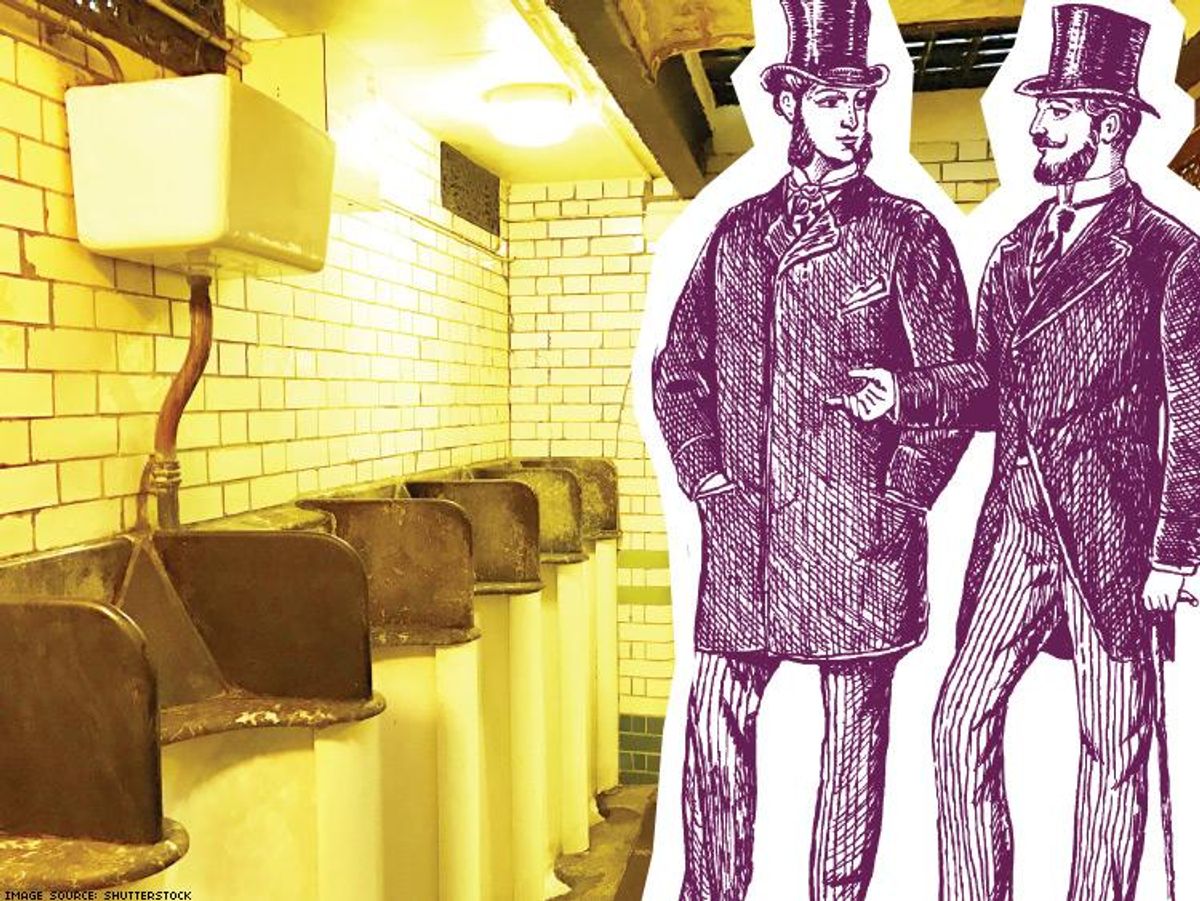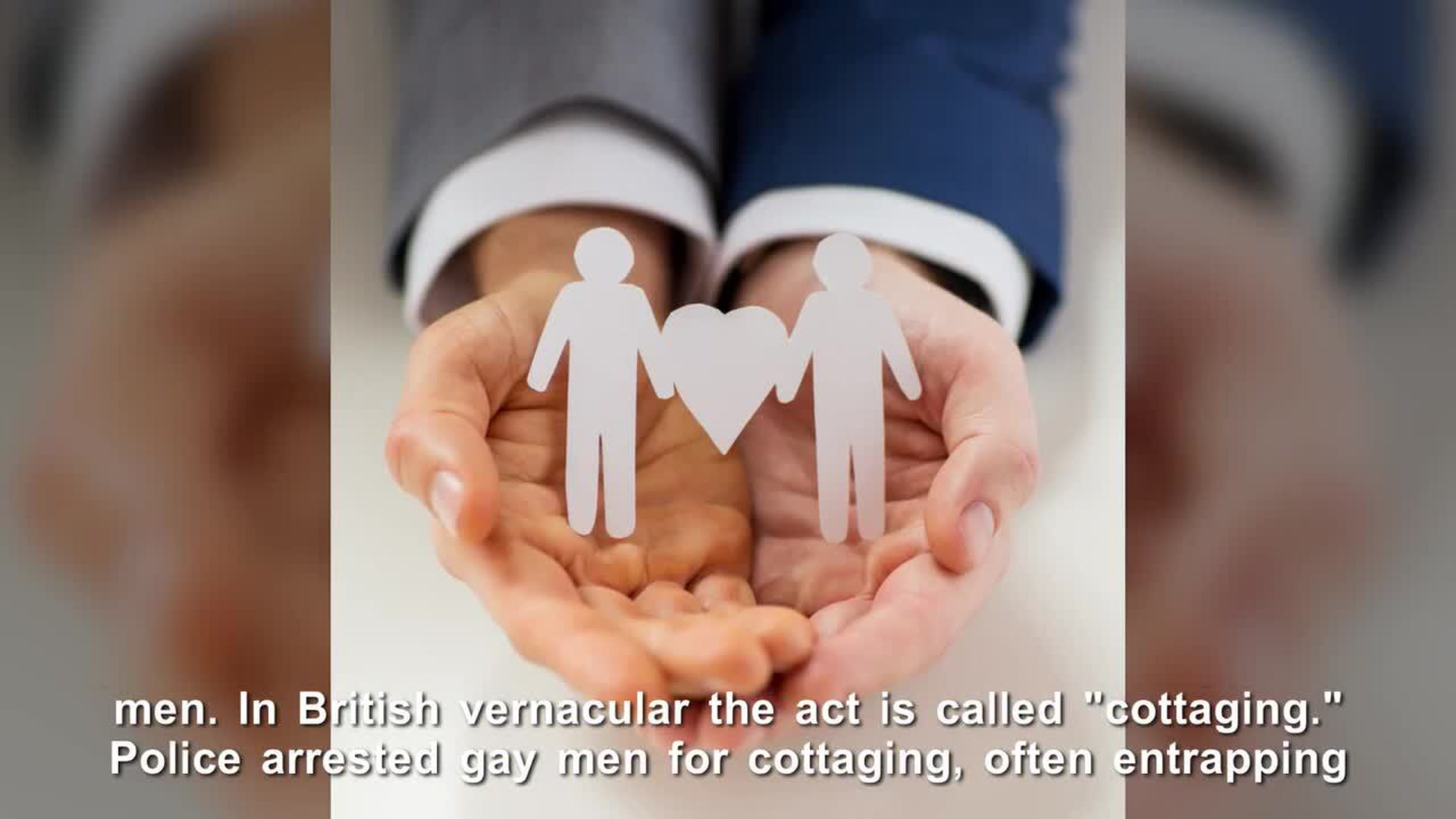Lifestyle
How Public Cruising Helped End UK Laws Criminalizing Gay Sex

Queer history shows a dangerous world of men picking up men in toilets, parks & streets.
June 29 2017 4:03 PM EST
May 26 2023 1:05 PM EST
By continuing to use our site, you agree to our Private Policy and Terms of Use.

Queer history shows a dangerous world of men picking up men in toilets, parks & streets.
It's been 50 years since consensual gay sex was decriminalized in the United Kingdom, but what is too easily forgotten is the role that public sex played in overturning this injustice that destroyed reputations and shattered lives.
For a long time, public cruising was the only way men could meet other men for sex. London parks like Hampstead Heath and Clapham Common were well-known meeting grounds, much like the Ramble in Central Park. Different public restrooms became notorious for different types of men: If you wanted working-class, market trade, you'd head to Covent Garden; for something a little theatrical, it was Leicester Square or Piccadilly.
In British vernacular the act is called cottaging: The Victorians--prudish about defecation--built lavatories in public parks that resembled traditional country houses. Toilets became "cottages," and looking for sex in one was "cottaging." Only the English could make something that involves whipping your cock out in public sound like something you'd watch on Masterpiece Theatre.
The tabloids' love of sex scandal is nothing new. So-called penny dreadfuls would publish lurid details of public sex convictions, informing those interested how and where homosex was available. It was also a prism through which straight society learned about homosexuality.
Later--much like the Lavender Scare--the Cold War defections of Anthony Burgess and Guy Maclean, one gay and the other bi, linked communism and subversion with homosexuality. Britain's home secretary, David Maxwell-Fyfe, called it a "plague over England." Arrests for public sex tripled; almost one third resulted in imprisonment.
In 1953, in the biggest gay scandal since Oscar Wilde's trial for sodomy, the actor John Gielgud was arrested. Dirty queer was scrawled on the wall of the theater he was working at (though one audience gave him a standing ovation). Brutal sentences and police techniques actually increased public sympathy. The media frenzy around the convictions of Lord Montagu and Peter Wildeblood, a journalist, started the process that led to partial decriminalization. Its aim was not emancipation but to remove homosexuality from public sight.
Decriminalization did not stop cottaging. I'm evidence of that. Thirty years later, I was having sex in a public toilet--a lot of it. I lost my virginity in one. I used to skip sport afternoons at school to look for sex; at university we would spend whole weekends cottaging from dawn to dusk in London: Well-known tourist spots like Hyde Park, Oxford Circus and trendy Carnaby Street all had cruisy toilets.
I cottaged, in part, out of necessity--I had only one gay bar where I grew up.
But it was more than that. Its appeal lay in the spontaneity. Unlike Grindr, you didn't have to scroll through profiles. And its immediacy shouldn't devalue it. Cruising is a hunt for sexual experience: I still remember the thrill of the journey into the unknown, the stripping away of pretense and convention. It was addictive.
Police continued to arrest gay men for cottaging, often entrapping them by pretending to be cottagers. After 1967, despite "decriminalization" in place, 30,000 men were arrested and convicted for same-sex activity. It was a "pretty policeman" who arrested Gielgud; George Michael was arrested that way, too. Others, less prominent, faced worse.
It has been estimated that up to 100,000 men were arrested for homosexual offenses in Britain. It was a state-sanctioned witch hunt.
It is only recently that the British government pardoned those unjustly persecuted. In 2003, under Tony Blair, the remaining sexual-offenses discrimination ended. But cottaging is still illegal. Although police no longer entrap victims, a conviction can mean up to six months in prison and being put on the Sex Offenders Register.
Of course, now most cruising has moved online. The irony of gay rights is that it has shrunk queer space. Queer history shows a different world--though often dangerous--of fluid sexuality, of men picking up men in toilets, parks and streets. Maybe that fluidity is straining to return.
